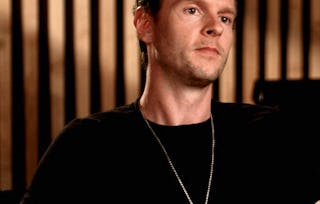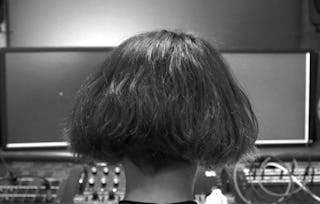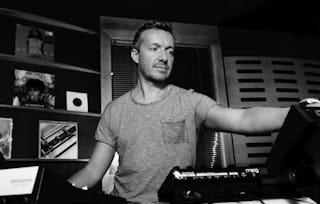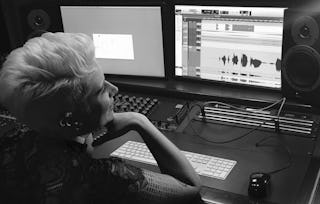This course addresses recorded vocal performances and the technologies used to highlight and support them in modern record production and mixes. Most of us know that vocals serve as the focal point of modern recordings but many do not know the tools used or when the tools are used best in modern record production.

The Art of Vocal Production

The Art of Vocal Production
This course is part of multiple programs.

Instructor: Prince Charles Alexander
42,867 already enrolled
Included with
374 reviews
Recommended experience
What you'll learn
Discuss the various types of dynamics processing and when to use each and apply equalization to a vocal track to enhance and improve the quality
Define, describe, and apply time based effects and use them to enhance the sound of a vocal track
Compare audio editing techniques, including time based and tempo based
Discuss how technology has changed the music recording industry
Skills you'll gain
Details to know

Add to your LinkedIn profile
See how employees at top companies are mastering in-demand skills

Build your subject-matter expertise
- Learn new concepts from industry experts
- Gain a foundational understanding of a subject or tool
- Develop job-relevant skills with hands-on projects
- Earn a shareable career certificate

There are 4 modules in this course
Welcome to The Art of Vocal Production! Here we will cover all the details about the course and what you'll need to know to get the most out of your experience.. Then, we will discuss vocal placement within the stereo field and how recording a vocalist multiple times can create various types of listening experiences. You will learn about level, phase, phantom center, panning, balance, equalization and compression concepts used in modern recordings. Your ability to listen to music will be expanded and you will probably never listen to vocals in music the same way ever again once you have been exposed to these simple concepts.
What's included
19 videos6 readings3 assignments2 discussion prompts
In this module, we will lean less on the vocalist and more on tools that can be used to change the way we listen to vocals in music. You will now understand how delays and reverbs have been used in the music you love and their relationship to time and tempo. Your desire to try out some of these techniques will be piqued by the time you finish this lesson.
What's included
16 videos1 reading2 assignments1 discussion prompt
In this module, the nature of the DAW (Digital Audio Workstation) will be demystified and simplified. You will understand time as an absolute concept, time as a relative concept and further grasp the utility of the sample rate and bit depth parameters in your audio software. You will be shown tools that can change a song from a ballad to a dance record and vice versa. Many modern vocal production tools exist in software that might already be on your computer; but if you do not have such tools, you will document the use of these concepts via in-depth analysis of current and emerging music.
What's included
14 videos1 reading2 assignments1 discussion prompt
In this module, you will learn some of the industry standard pitch correction and tuning tools. Although you will gain an understanding and appreciation of how easy the job of a vocalist can be when these tools are used, you will also learn that your first lesson in simple performance and placement is still the most potent skill in your art of vocal production arsenal.
What's included
10 videos1 reading2 assignments1 peer review1 discussion prompt
Earn a career certificate
Add this credential to your LinkedIn profile, resume, or CV. Share it on social media and in your performance review.
Instructor

Offered by
Explore more from Music and Art
 Status: Free Trial
Status: Free Trial Status: Free Trial
Status: Free TrialBerklee
 Status: Free Trial
Status: Free Trial Status: Free Trial
Status: Free TrialBerklee
Why people choose Coursera for their career

Felipe M.

Jennifer J.

Larry W.

Chaitanya A.
Learner reviews
- 5 stars
81.01%
- 4 stars
12.29%
- 3 stars
4.01%
- 2 stars
1.33%
- 1 star
1.33%
Showing 3 of 374
Reviewed on Feb 6, 2024
This course covered a lot of key points which otherwise remains unexplained while starting off with music production.
Reviewed on Jul 23, 2020
It's really a great opportunity to be in this course. Learnt a lot. The way the basics were taught is awesome
Reviewed on Sep 7, 2021
I thoroughly enjoyed this course. It was so clearly explained and the information presented has improved my knowledge and ability in music production. Thank you very much!

Open new doors with Coursera Plus
Unlimited access to 10,000+ world-class courses, hands-on projects, and job-ready certificate programs - all included in your subscription
Advance your career with an online degree
Earn a degree from world-class universities - 100% online
Join over 3,400 global companies that choose Coursera for Business
Upskill your employees to excel in the digital economy
Frequently asked questions
During the course, you will be asked at times to submit recorded examples of your song ideas. In order to do this, you will need your computer's built-in microphone or an external microphone plugged directly into your computer (via built-in ports or an external audio interface), in addition to basic audio recording software, such as Audacity or GarageBand, that will allow you to record yourself and save the recording in MP3 format.
Although working with your own original music is not required of this course, you are welcome to use your compositions and songs for some class work.
To access the course materials, assignments and to earn a Certificate, you will need to purchase the Certificate experience when you enroll in a course. You can try a Free Trial instead, or apply for Financial Aid. The course may offer 'Full Course, No Certificate' instead. This option lets you see all course materials, submit required assessments, and get a final grade. This also means that you will not be able to purchase a Certificate experience.
More questions
Financial aid available,
¹ Some assignments in this course are AI-graded. For these assignments, your data will be used in accordance with Coursera's Privacy Notice.

